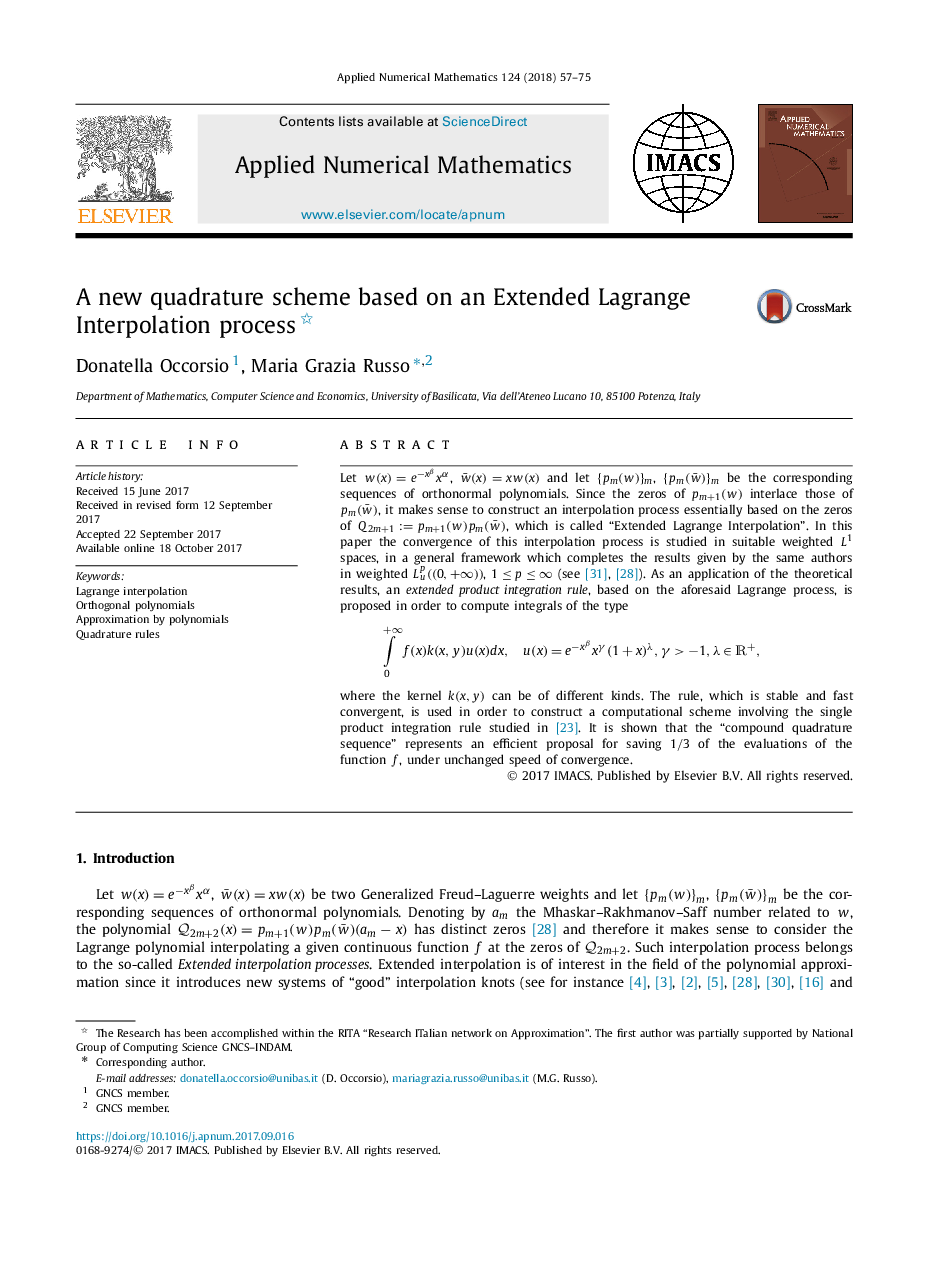| Article ID | Journal | Published Year | Pages | File Type |
|---|---|---|---|---|
| 8902713 | Applied Numerical Mathematics | 2018 | 19 Pages |
Abstract
Let w(x)=eâxβxα, w¯(x)=xw(x) and let {pm(w)}m, {pm(w¯)}m be the corresponding sequences of orthonormal polynomials. Since the zeros of pm+1(w) interlace those of pm(w¯), it makes sense to construct an interpolation process essentially based on the zeros of Q2m+1:=pm+1(w)pm(w¯), which is called “Extended Lagrange Interpolation”. In this paper the convergence of this interpolation process is studied in suitable weighted L1 spaces, in a general framework which completes the results given by the same authors in weighted Lup((0,+â)), 1â¤pâ¤â (see [31], [28]). As an application of the theoretical results, an extended product integration rule, based on the aforesaid Lagrange process, is proposed in order to compute integrals of the typeâ«0+âf(x)k(x,y)u(x)dx,u(x)=eâxβxγ(1+x)λ,γ>â1,λâR+, where the kernel k(x,y) can be of different kinds. The rule, which is stable and fast convergent, is used in order to construct a computational scheme involving the single product integration rule studied in [23]. It is shown that the “compound quadrature sequence” represents an efficient proposal for saving 1/3 of the evaluations of the function f, under unchanged speed of convergence.
Related Topics
Physical Sciences and Engineering
Mathematics
Computational Mathematics
Authors
Donatella Occorsio, Maria Grazia Russo,
